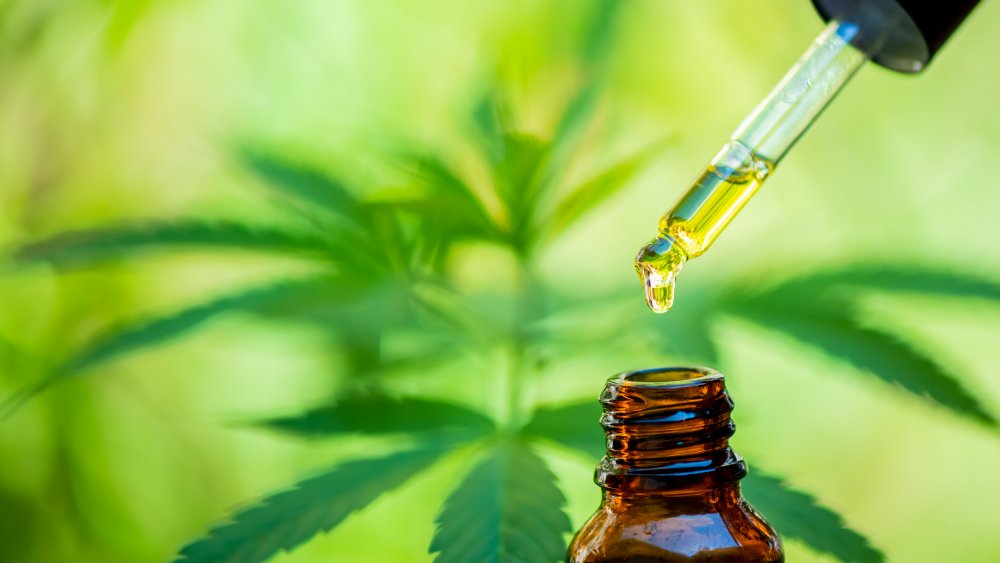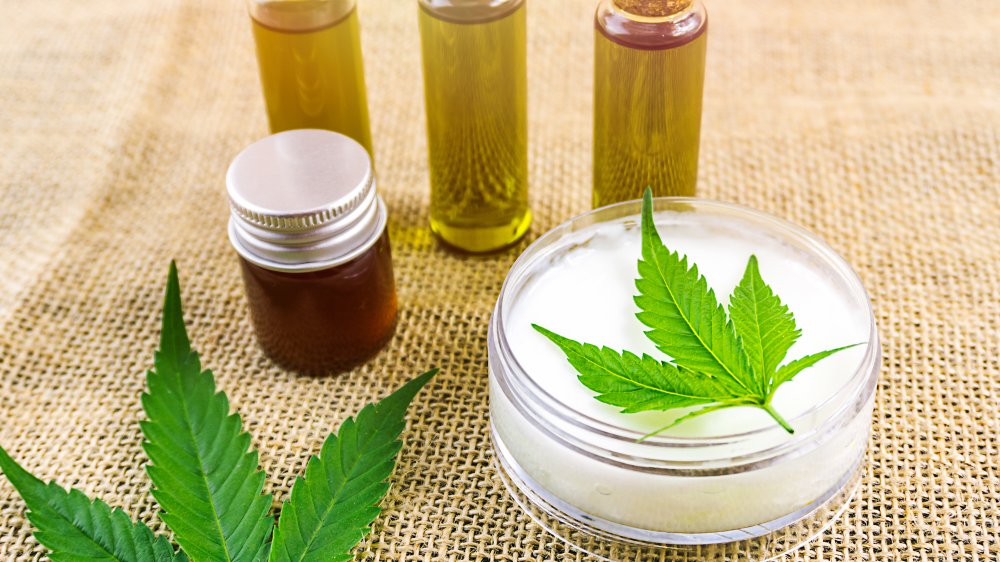Study Shines Light On Why People Use CBD
A new study of cannabidiol (or CBD) use among online users shines light on just what conditions send people searching for CBD as a home remedy, as well as the need to regulate unproven therapeutic claims (via the American Medical Association's JAMA Network Open).
Cannabidiol is the second most prevalent active ingredient in cannabis, or marijuana — but contrary to some assumptions, it doesn't cause marijuana's euphoria or get you high. It's actually derived from the hemp plant (a marijuana cousin) and is an essential component of medical marijuana, according to Harvard Medical School. All 50 states have laws that legalize CBD to some degree (via Harvard Health Publishing).
Although marketing claims that over-the-counter CBD can treat an array of conditions, researchers at the Qualcomm Institute's Center for Data Driven Health at the University of California San Diego wanted to review real feedback from the public. They pulled a random sample of testimonials shared on the social media Reddit forum r/CBD from January 1, 2014, through August 31, 2019, to gauge why people reported using CBD for medicinal purposes.
Psychiatric conditions such as depression or autism had the most testimonials, followed by orthopedic conditions, sleep issues, and neurological conditions, the researchers said. In the posts, people also said they used CBD for gastrointestinal conditions, dermatological concerns such as acne, canker sores, arrhythmias, erectile dysfunction, vividness of color perception, and opioid withdrawal.
CBD can help treat epilepsy and nausea — but other treatments need more study
In recent years, the CBD market has skyrocketed, with a projected $4.7 billion in sales in the United States for 2020 — a growth of 14 percent from 2019, according to the Brightfield Group, a company in Chicago, Illinois, that has consumer data on CBD and cannabis in the United States and Canada since 2015.
Currently, the only medical use for any CBD-derived product that the Food and Drug Administration (FDA) has approved is for epilepsy, said Dr. Lenny Cohen, a neurologist at Chicago Neurological Services in Illinois (via Healthline). However, some cannabis derivatives have been approved to ease nausea in people undergoing treatment for cancer, he added.
"The rest are pure speculation and anecdotal references," Cohen told Healthline. "One of the biggest pushes for cannabinoids happened due to the overuse of narcotics with the unfounded belief that cannabinoids can be as beneficial [as] and less addictive than narcotics."
The researchers at JAMA Network Open said the findings indicate a need to regulate CBD's use to treat diagnosable conditions, plus public health campaigns encouraging people to seek the advice of medical professionals. They also recommended that health care professionals become more engaged with their patients about their potential use of CBD products.
"Although many potential therapeutic uses of CBD remain to be explored, our findings suggest that the public already perceives CBD as an effective therapeutic for many health conditions in ways that are potentially detrimental to public health," the researchers wrote.


